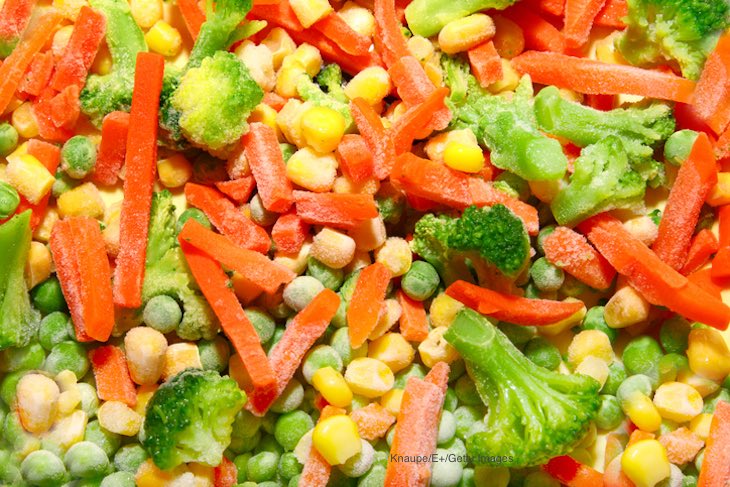Most people don’t think about the possibility of Listeria monocytogenes in frozen vegetables, but there have been listeriosis outbreaks and recalls linked to this type of food. Three recalls last year for spinach, red peppers, and avocados were issued for possible Listeria contamination. So should you be worried about Listeria in frozen vegetables?

The European Food Safety Authority (EFSA) has released guidelines about how to reduce the risks of Listeria monocytogenes in frozen vegetables. They say that the risks of contracting listeriosis in frozen vegetables is lower than the risk associated with smoked fish, sausages, pate, and soft cheeses. Processors often blanch vegetables before freezing them to set the color and texture, and this step helps destroy pathogens on the food.
EFSA states that food processors must constantly monitor the food producing environment for the presence of Listeria monocytogenes. That pathogen can establish itself in food facilities, especially those that use lots of water, and can be very difficult to eradicate once it has formed biofilms. The bacteria can even survive cleaning efforts.
So to protect yourself and your family, make sure that you monitor FDA and USDA recalls. And to reduce the risk of contracting listeriosis from frozen vegetables, always store frozen vegetables in a clean freezer set to 0°F or below, and make sure that your refrigerator is clean. Always store fruits and vegetables in the fridge, especially if they have been processed in some way, that is, cut or chopped. Listeria monocytogenes can grow at refrigerator temperatures, and freezing doesn’t kill it, but still follow these precautions.
The main way to protect yourself is to thoroughly cook these vegetables before you eat them. Follow instructions on frozen vegetable labels for safe preparation and use a food thermometer. Cooking food thoroughly will kill the pathogen.
Symptoms of listeriosis include high fever, stiff neck, severe headache, muscle aches, nausea, and diarrhea. Pregnant women are at special risk for this illness because the pathogen causes miscarriage and stillbirth even though the woman’s illness seems mild. Other groups at risk include the very young, the elderly, and people with chronic illnesses and compromised immune systems.




